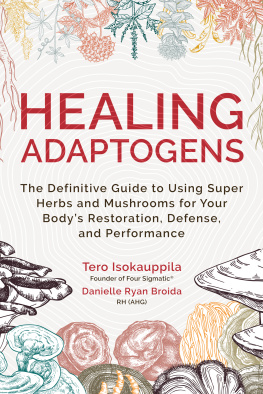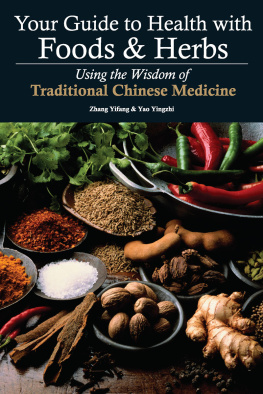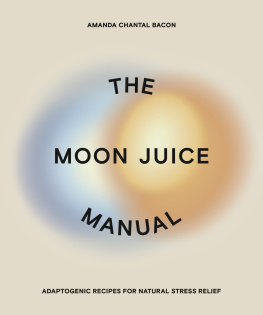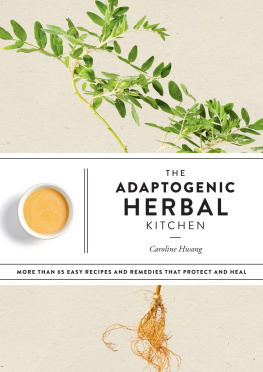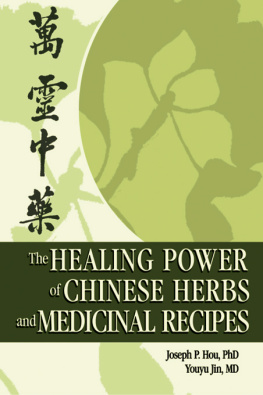Thank you for downloading this Simon & Schuster ebook.
Get a FREE ebook when you join our mailing list. Plus, get updates on new releases, deals, recommended reads, and more from Simon & Schuster. Click below to sign up and see terms and conditions.
Already a subscriber? Provide your email again so we can register this ebook and send you more of what you like to read. You will continue to receive exclusive offers in your inbox.
Introduction
The human quest for longevity, youthfulness, and rejuvenation has spanned hundreds of years and taken many forms. From the medieval obsession with alchemy and the elixir of life to the modern fascination with superfoods, it seems that we have always had a drive to do more, be more, and set new standards for health and vitality.
Many years ago, the Soviet Union instructed their scientists to open a new chapter in this quest. They were ordered to search for and develop substances that would allow their athletes, military personnel, and even chess players to excel above and beyond, to have an edge in stamina, strength, endurance, and mental abilities that would bring them international glory. After much work, these scientists focused their research on, of all things, herbsa very specific group of herbs that became known as adaptogens. American ginseng, eleuthero, rhodiola, and holy basil are just a few examples of the plants that we now know as adaptogens. These remarkable plants have been shown to have a gentle but measurable influence on immunity, sleep, stress levels, energy, and endurance.
Whether you are interested in honing your mental abilities to a razor-sharp level, want to give your athleticism a boost, or are looking for ways to include tonic herbs as part of a healthy lifestyle, adaptogens have so much to offer for everyday well-being.
There are fabulous resources available to teach you about the many traditional uses and modern research regarding these herbs, but this book is different. It shows you how to take these amazing herbs and add them into your daily routines with flair! By making your own extracts, elixirs, and teas, you will save money, have a high-quality product, and end with something thats unique rather than an off-the-shelf item. You can tailor your creations to be exactly what you want or need them to be!
Adaptogens lend themselves well to a variety of creative recipes, and working with them in this way is a pleasure. Rather than another expensive vitamin pill to pop or a bitter-tasting herbal extract to toss back while pinching your nose, you can experiment with tasty teas, yummy syrups, or fun and interesting snacks to incorporate adaptogens into your life.
Adaptogens can become a valuable part of your healthy lifestyle. They are also a great way to begin working with herbs in general. Thanks to their safety (an herb must be nontoxic and safe for extended use to qualify as an adaptogen), they are some of the easiest and most accessible herbs to work with for the average person. With a few general guidelines in place, you can approach these herbs with confidence. Turn the page to find out what you need to get started creating your first DIY adaptogen recipes, and follow in the footsteps of others who have explored some of the most compelling quests in human history: How much can we do? How much can we become? What is the full potential for our health and vitality?

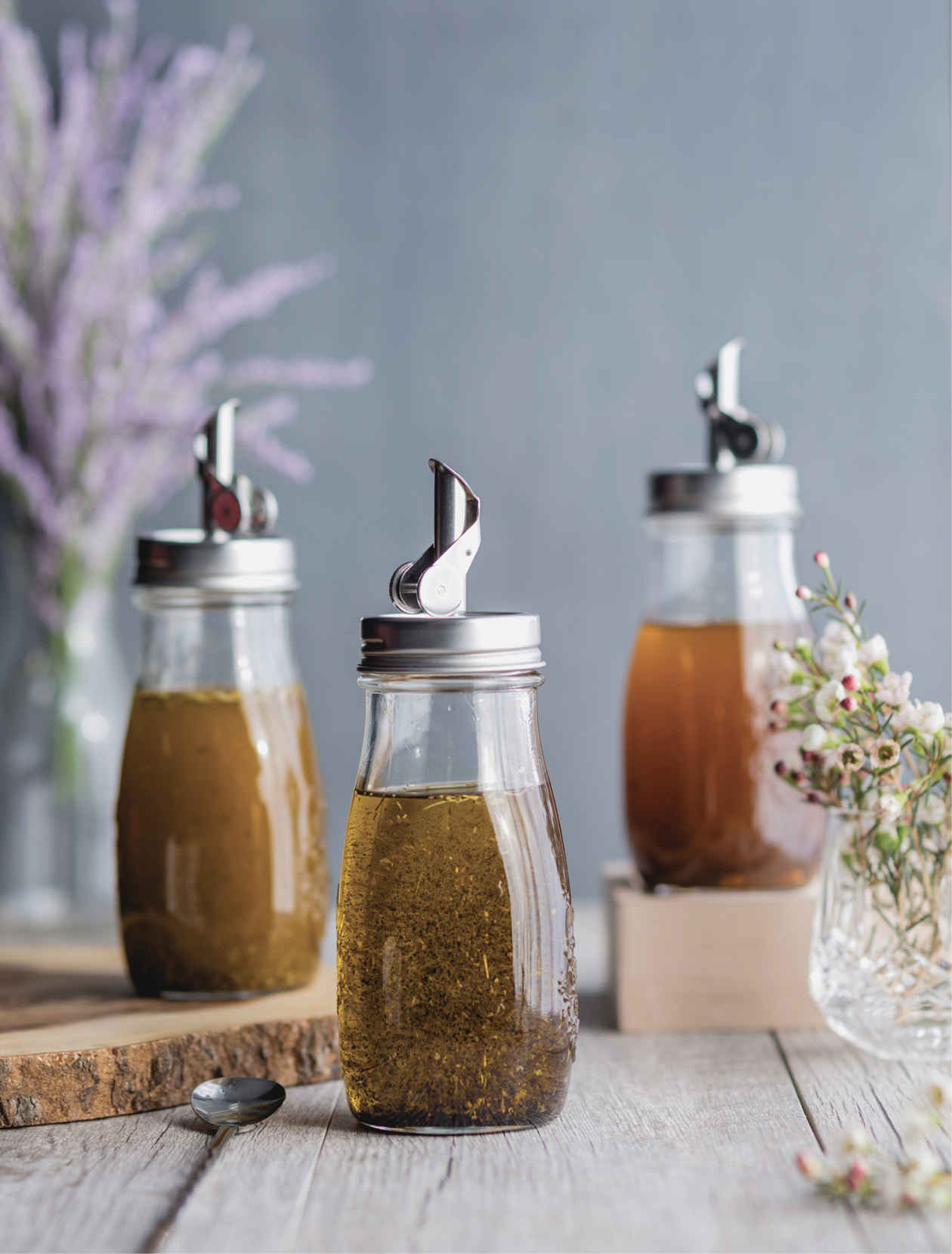
CHAPTER ONE
UNDERSTANDING AND USING ADAPTOGENS
Many people are looking for ways to be healthy that go beyond the vitamin bottle. They are looking for ways to increase vitality that are less about taking a pill and more about making different lifestyle choices, incorporating nutrient-dense foods, and utilizing the basic tenets of many ancient forms of healing, including herbalism, in daily life. During this quest for optimum health and vitality, many people come across the concept of adaptogenic herbs.
What Are Adaptogens?
The concept of plants with revitalizing or restorative properties that can enhance health has been around for thousands of years, although adaptogen is a modern word that has only been used to describe them since the 1940s. Many of the herbs that we know as adaptogens today were first used generations ago in Ayurveda (the traditional system of herbalism in India) and in traditional Chinese medicine (TCM).
In Ayurveda, for example, herbs such as amla, shatavari, and holy basil are classified as rasayana herbs. Rasayanas are herbs that increase vitality and are believed to promote youthfulness and increase resistance to illness. In modern herbalism, we use these three herbs along with many other rasayanas as adaptogens.
One of the concepts of traditional Chinese medicine groups herbs into three categories based on their actions and safety of use. Many herbs in the first category, sometimes translated as superior herbs, are valued for their tonic and harmonizing influence on overall health. Many herbs that we know as adaptogens today belong to this class of herbs, such as he shou wu, eleuthero, and schisandra.
So how did we come to describe these herbs as adaptogens? In the late 1940s, the government of the then-USSR instructed its scientists to create a substance that could be used to increase the performance of the countrys athletes, military personnel, and even elite chess players, so that they could dominate and excel in every international arena.
We owe the modern word adaptogen to the Soviet doctor and scientist Nikolai V. Lazarev. In 1947, he created the word from the Latin word adaptare , meaning to adjust. He used it to mean a substance that raises the nonspecific resistance of the body to stress so that the body is better able to adapt to stressful circumstances.
Eventually, the Soviet research into adaptogenswhich had a strict focus on safetyturned away from chemical substances such as dibazol and began to focus on American ginseng. From there, research branched out to include other plants that also belonged to the Araliaceae family, such as eleuthero, and then to an even broader selection of herbs.
By 1968, Israel I. Brekhman, PhD, and Dr. I.V. Dardymov had developed the functional definition that has evolved into the understanding of adaptogens that we have today. According to the definition used by Brekhman and Dardymov:
An adaptogen is nontoxic to the recipient.
An adaptogen produces a nonspecific response in the bodyan increase in the power of resistance against multiple stressors, including physical, chemical, or biological agents.
An adaptogen has a normalizing influence on physiology, irrespective of the direction of change from physiological norms caused by the stressor.
Although this is the first recorded functional definition of adaptogens, there is no official definition. But, like this original definition, most modern descriptions include the concepts that adaptogens:


